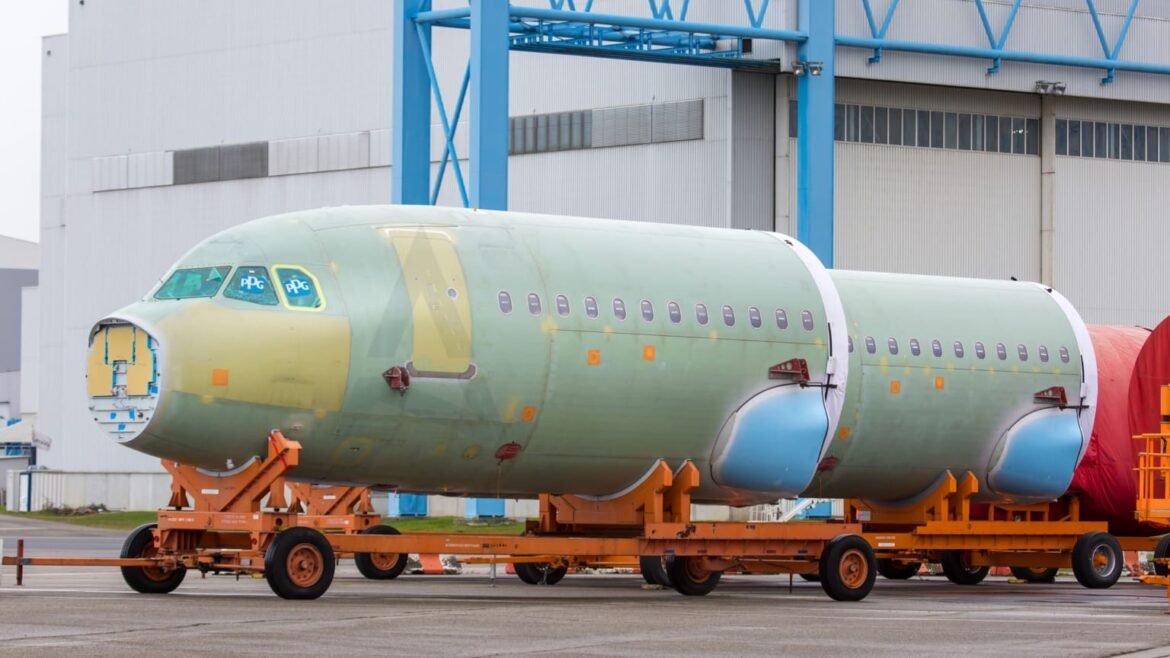Amidst mounting supply chain and labor issues, Airbus, one of the world’s leading aircraft manufacturers, is encountering production delays, raising concerns within the aviation industry. These challenges come at a critical juncture when the global aviation sector is striving to recover from the disruptions caused by the COVID-19 pandemic.
One of the primary factors contributing to Airbus’ production delays is the strain on its supply chain. The aerospace industry relies on a complex network of suppliers and manufacturers for various components and materials essential for aircraft production. However, disruptions such as shortages of critical parts, logistics bottlenecks, and delays in raw material deliveries have impeded the smooth functioning of Airbus’ supply chain.
In addition to supply chain challenges, Airbus is grappling with labor shortages, particularly in its manufacturing facilities. The pandemic-induced downturn in air travel led to workforce reductions and production slowdowns, resulting in a shortage of skilled labor in some key areas. While Airbus has been working to ramp up production to meet increasing demand, recruiting and training new personnel has proven to be a time-consuming process, further exacerbating the production delays.
The production delays at Airbus have significant implications for aircraft deliveries to airlines worldwide. Airlines rely on timely deliveries of new aircraft to replace aging fleets, expand their operations, and meet growing passenger demand. Delays in aircraft deliveries not only disrupt airlines’ fleet planning but also affect their ability to capitalize on emerging market opportunities and meet regulatory requirements.
The production delays could also have financial repercussions for Airbus and its stakeholders. Delays in aircraft deliveries can lead to penalties imposed by airlines for late delivery, erode customer confidence, and potentially impact future orders. Moreover, Airbus may incur additional costs associated with expediting production, addressing supply chain disruptions, and managing labor shortages, further impacting its bottom line.
To mitigate the impact of production delays, Airbus has been implementing various measures, including optimizing its supply chain, enhancing production efficiency, and streamlining manufacturing processes. The company is also exploring innovative solutions such as digitalization and automation to improve productivity and address labor shortages. Additionally, Airbus is collaborating closely with its suppliers and partners to address bottlenecks and ensure a steady flow of materials and components.
The challenges faced by Airbus reflect broader issues within the aerospace sector as it navigates the post-pandemic recovery phase. While the industry has shown resilience in the face of adversity, uncertainties surrounding global supply chains, labor markets, and regulatory environments continue to pose challenges. However, industry stakeholders remain optimistic about the long-term prospects of the aviation sector, driven by factors such as increasing air travel demand, technological advancements, and sustainable aviation initiatives.
As Airbus grapples with production delays due to supply chain and labor issues, the company faces a critical test of its resilience and adaptability. Addressing these challenges will require concerted efforts from Airbus, its suppliers, and other stakeholders across the aviation industry. By implementing proactive measures, fostering collaboration, and embracing innovation, Airbus can overcome the current hurdles and emerge stronger, ensuring its continued leadership in the global aerospace market.

